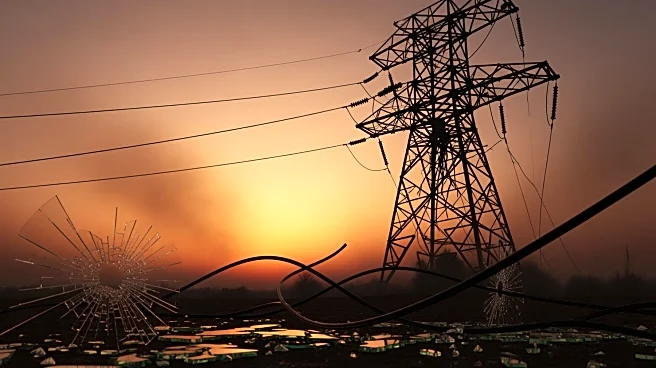What is the story about?
What's Happening?
A significant immigration raid at Hyundai's battery plant in Georgia resulted in the arrest of 475 workers, underscoring the clash between President Trump's immigration policies and his economic ambitions. The raid is part of broader enforcement efforts that have affected the construction industry, with many contractors reporting disruptions due to immigration actions. The Associated General Contractors of America conducted a survey revealing that immigration enforcement has led to job walk-offs and absenteeism, impacting subcontractors and raising concerns about workforce availability. Additionally, tariffs imposed by the Trump administration are increasing the cost of raw materials, complicating planning for long-term construction projects.
Why It's Important?
The raid and subsequent enforcement actions highlight the tension between immigration policies and economic growth initiatives. While President Trump aims to boost manufacturing and attract foreign investment, his policies may inadvertently hinder these goals by creating uncertainty and increasing costs for businesses. The construction industry, crucial for infrastructure development, faces challenges in workforce availability and rising material costs, potentially delaying projects and affecting economic growth. The situation raises questions about the balance between enforcing immigration laws and fostering a conducive environment for investment and job creation.
What's Next?
Hyundai has stated its commitment to investing $26 billion in U.S. facilities by 2028, despite the raid. The company plans to ensure compliance with immigration laws among its partners and contractors. The Trump administration defends the raid, emphasizing the importance of hiring American workers while acknowledging the need for foreign expertise in specialized projects. The ongoing enforcement measures and tariff policies may continue to impact construction costs and project timelines, prompting businesses to reassess their investment strategies in the U.S.
Beyond the Headlines
The broader implications of these developments include potential shifts in foreign investment strategies and the role of immigration in the U.S. labor market. The construction industry's reliance on foreign-born workers highlights the need for a balanced approach to immigration policy that supports economic growth while addressing legal compliance. The situation also underscores the importance of stable policy environments for attracting and retaining foreign investment, which is vital for maintaining the U.S.'s position as a global economic leader.
















